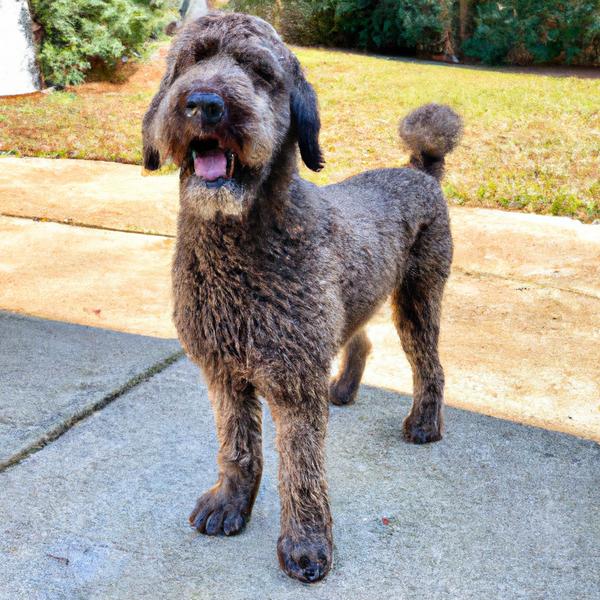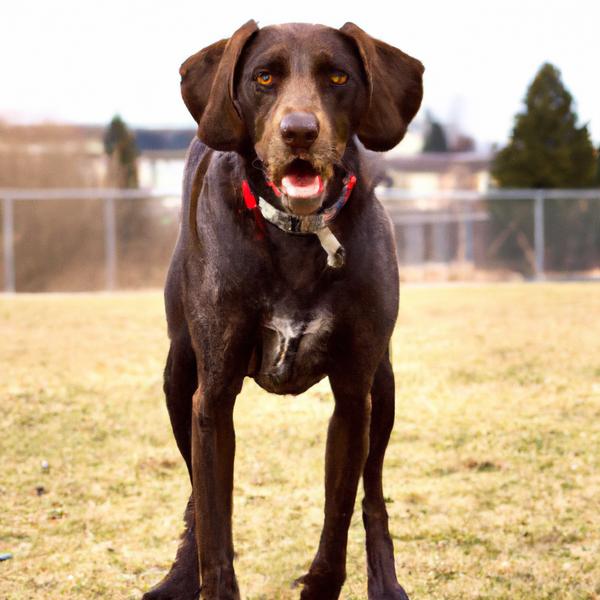Belgian Shepadoodle vs. German Wirehaired Lab: Breed Differences and Similarities
Hypoallergenic
Are Belgian Shepadoodles or German Wirehaired Labs hypoallergenic, or neither?
Unfortunately, neither Belgian Shepadoodle nor German Wirehaired Lab are hypoallergenic, which may not make them the best choice for dog lovers who suffer from pet allergies.
Temperament
What are the personalities of Belgian Shepadoodle and German Wirehaired Lab dogs?
Active
Energetic
Protective
Alert
Intelligent
Lively
Trainable
Watchful
Faithful
Instinctual
Active
Playful
Loving
Energetic
Alert
Intelligent
Friendly
Responsive
Affectionate
Loyal
Gentle
Going
Social
Cheerful
Willful
Shedding Level
Do Belgian Shepadoodles shed more than German Wirehaired Labs, or which breed sheds more, Belgian Shepadoodles or German Wirehaired Labs?
Belgian Shepadoodles are low shedding dogs, requiring minimal coat care.
German Wirehaired Labs are moderate shedders, but regular brushing can reduce shedding and maintain coat health.
Ancestry
What are the origins of Belgian Shepadoodle and German Wirehaired Lab breeds?
Belgian Shepherd and Poodle
German Wirehaired Pointer, Labrador Retriever
Date of Birth
When were Belgian Shepadoodle and German Wirehaired Lab breeds first developed?
Unknown
2000s
Litter Size
What is the usual litter size for Belgian Shepadoodle and German Wirehaired Lab?
Belgian Shepadoodle and German Wirehaired Lab, can have a litter of 6-10 puppies each on average. Nonetheless, it's important to keep in mind that litter size can differ significantly between individual dogs. Various factors such as the mother's health, breeding history, and genetics can have an impact on litter size.
Adaptability
Belgian Shepadoodle and German Wirehaired Labs are known for their adaptability and versatility. They are capable of adapting well to a wide range of lifestyle changes and living environments, making them great companions for families and individuals of all lifestyles.
Health Issues
Between Belgian Shepadoodle and German Wirehaired Lab, which breed is more prone to health problems?
Belgian Shepadoodle and German Wirehaired Lab breeds are generally considered to be healthy. However, like all breeds, they are susceptible to certain health issues and it is important to keep an eye out for them and address them with your veterinarian as needed.
Major Concerns
What are the major health concerns for Belgian Shepadoodle and German Wirehaired Lab breeds?
Cataracts
Sebaceous Adenitis
Bloat
Elbow Dysplasia
Hip Dysplasia
Minor Concerns
What minor health issues should be kept in mind when owning Belgian Shepadoodle and German Wirehaired Lab?
Hip Dysplasia
Hyperadrenocorticism
Hypoadrenocorticism
Entropion
Cataracts
Occasional Tests
What occasional tests are recommended for Belgian Shepadoodle and German Wirehaired Lab breeds?
Eye
Hip
Blood
X-Rays
X-Rays
Fluorescein Test
Full Physical Examination
Social Needs
Belgian Shepadoodle vs German Wirehaired Lab social needs comparison
Belgian Shepadoodle has very high social needs and requires regular mental and physical stimulation, a job or purpose, and companionship.
German Wirehaired Lab has above average social needs and thrives with interaction with humans and other dogs.
Sleeping Need
Which of the two sleeps the most/least: Belgian Shepadoodle or German Wirehaired Lab?
Belgian Shepadoodles have moderate energy levels and typical sleep patterns of 12-14 hours per day.
German Wirehaired Labs are active and require sufficient sleep to stay healthy.
Mouthiness
Mouthiness Comparison: Belgian Shepadoodle vs German Wirehaired Lab?
Roaming urge
Belgian Shepadoodle vs Labrador: Running away tendency?
Prey Drive
Belgian Shepadoodle or German Wirehaired Lab - which breed has a higher level of prey drive?
Tolerance of being left alone
Grooming
Which breed is easier to maintain in terms of grooming, Belgian Shepadoodles or German Wirehaired Labs?
Belgian Shepadoodles require significant grooming, including regular trims and professional grooming assistance to maintain their coat. They may also require frequent bathing to keep their coat and skin healthy.
The German Wirehaired Lab has low grooming needs and is easy to maintain.
Sensitivity Level
How do Belgian Shepadoodle and German Wirehaired Lab compare in sensitivity?
This breed is sensitive and requires gentle handling and a calm home environment.
This breed is sensitive to its environment and best suited for patient and understanding families with a consistent routine.
Apartment Friendly
Which breed is more apartment-friendly: Belgian Shepadoodle or German Wirehaired Lab?
Belgian Shepadoodles are good apartment dogs as long as they get enough exercise and stimulation outside of the apartment.
German Wirehaired Labs can do well in apartments with enough exercise and time outside, but a small yard would be ideal.
Child Friendly
Do Belgian Shepadoodles or German Wirehaired Labs have a friendlier temperament towards children?
Belgian Shepadoodles make excellent family pets for kids due to their gentle, protective nature and calm temperament.
German Wirehaired Labs are good with kids if socialized and trained from a young age.
Senior-friendly
Which dog is more suitable as a pet for the elderly - Belgian Shepadoodle or German Wirehaired Lab?
Cat Friendly
Do Belgian Shepadoodle or German Wirehaired Lab breeds have a better compatibility with cats?
Belgian Shepadoodles are good with cats, but early training is needed to prevent chasing behavior.
German Wirehaired Labs are average in their friendliness toward cats and tend to do well with them, especially if raised together.
Dog Friendly
Which breed is more sociable with other dogs: Belgian Shepadoodle or German Wirehaired Lab?
Belgian Shepadoodles are friendly and active companions, and can be good family pets, though their friendliness towards other dogs may vary.
German Wirehaired Labs are generally very friendly towards other dogs, with a happy and affectionate temperament.
Pet friendly
How do Belgian Shepadoodle or German Wirehaired Lab dogs interact with other pets?
Stranger Friendly
Which breed is more friendly with strangers: Belgian Shepadoodle or German Wirehaired Lab?
Belgian Shepadoodles are averagely friendly around strangers but benefit from early socialisation.
German Wirehaired Labs are highly friendly around strangers.
Playfulness
Which breed is more playful between Belgian Shepadoodle and German Wirehaired Lab?
Belgian Shepadoodles are a playful breed that needs daily playtime to be happy.
German Wirehaired Labs are very playful, so adopting an older one might be a better option for a more relaxed experience.
Trainability
How do the trainability levels of Belgian Shepadoodles and German Wirehaired Labs compare?
The Belgian Shepadoodle and German Wirehaired Lab are breeds of dogs that are known for being very easy to train. They are highly intelligent and eager to please, which makes them a great choice for both experienced and novice dog owners.
Compare Belgian Shepadoodle with other breeds

Bushland Terrier
Belgian Shepadoodle vs Bushland Terrier
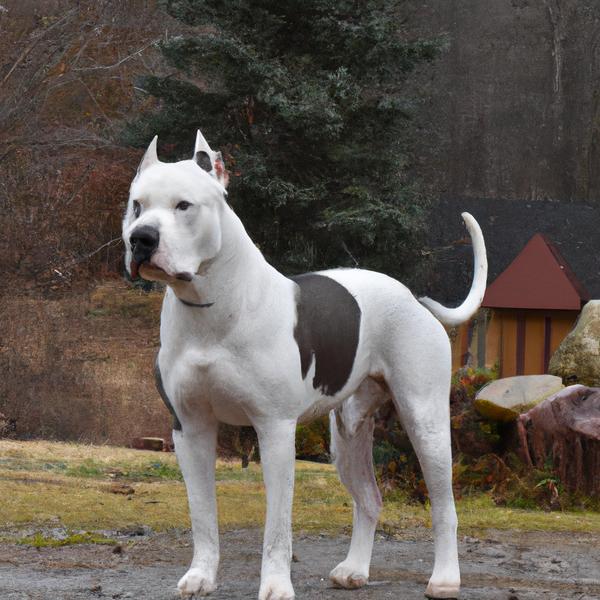
Alaskan Pit Bull
Belgian Shepadoodle vs Alaskan Pit Bull
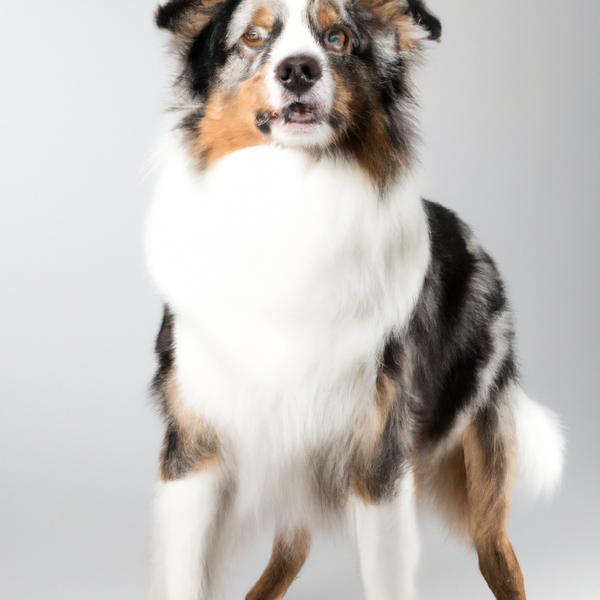
Australian Shepherd
Belgian Shepadoodle vs Australian Shepherd
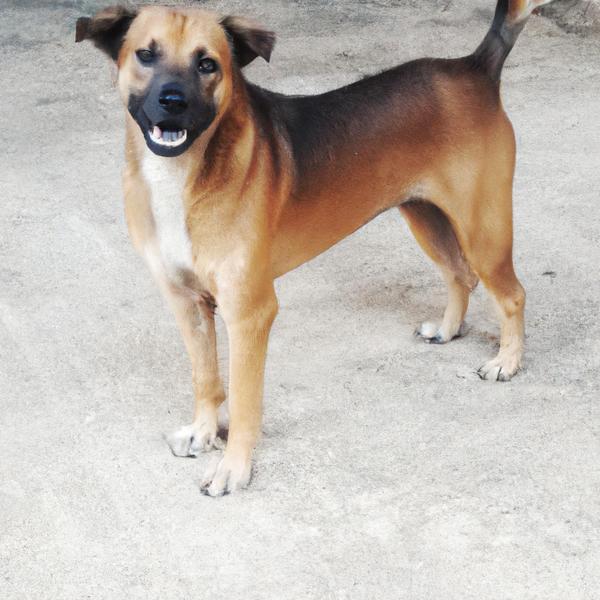
Bassugg
Belgian Shepadoodle vs Bassugg
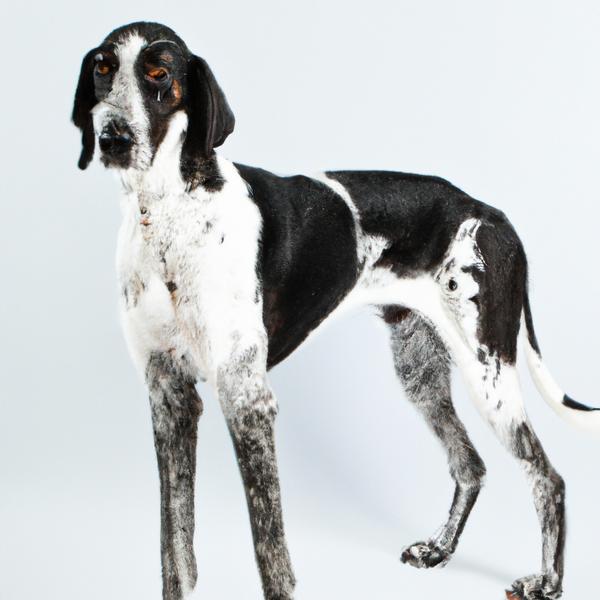
Spantriever
Belgian Shepadoodle vs Spantriever
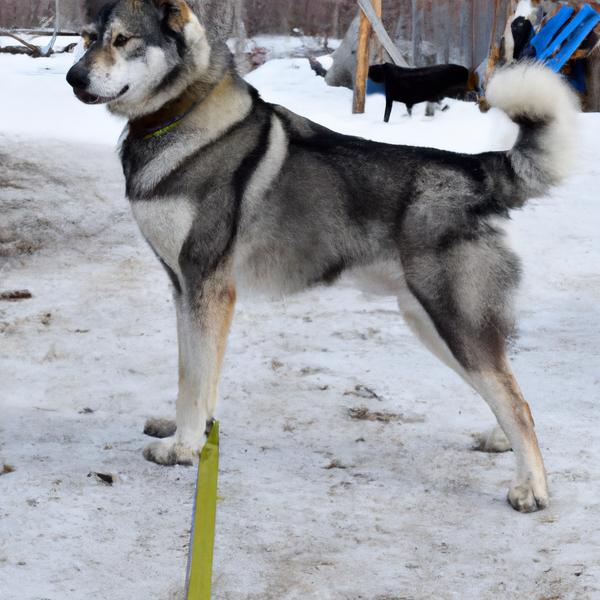
Boskimo
Belgian Shepadoodle vs Boskimo

Doberdane
Belgian Shepadoodle vs Doberdane

Scotchon
Belgian Shepadoodle vs Scotchon
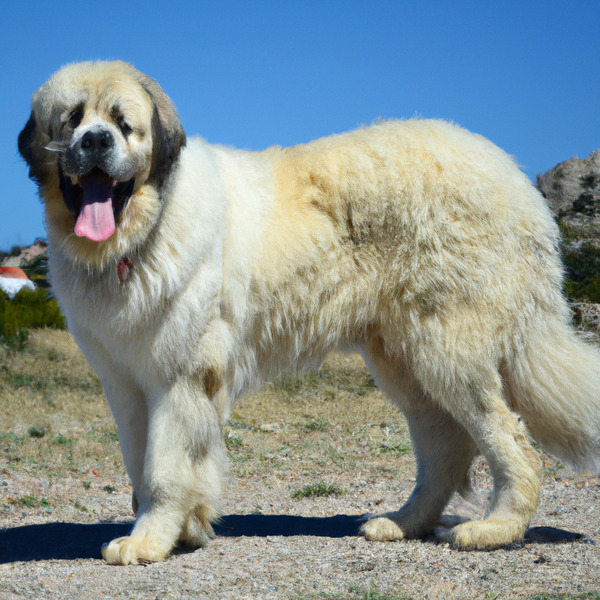
Pyrenean Mastiff
Belgian Shepadoodle vs Pyrenean Mastiff

Muggin
Belgian Shepadoodle vs Muggin

Docker
Belgian Shepadoodle vs Docker
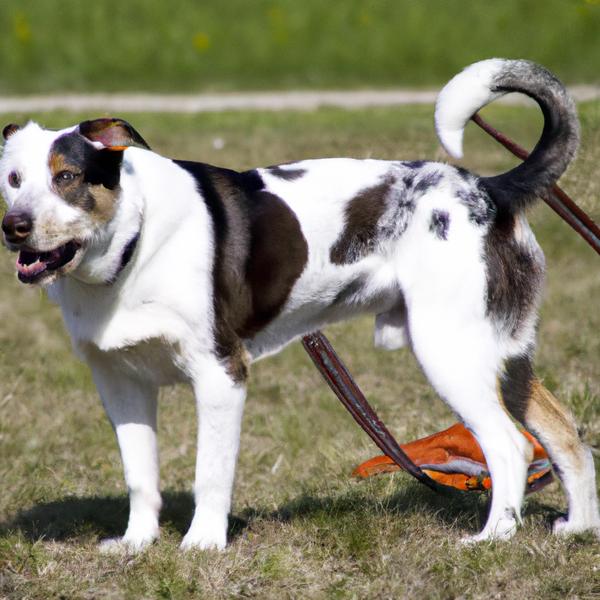
Bull-Aussie
Belgian Shepadoodle vs Bull-Aussie
